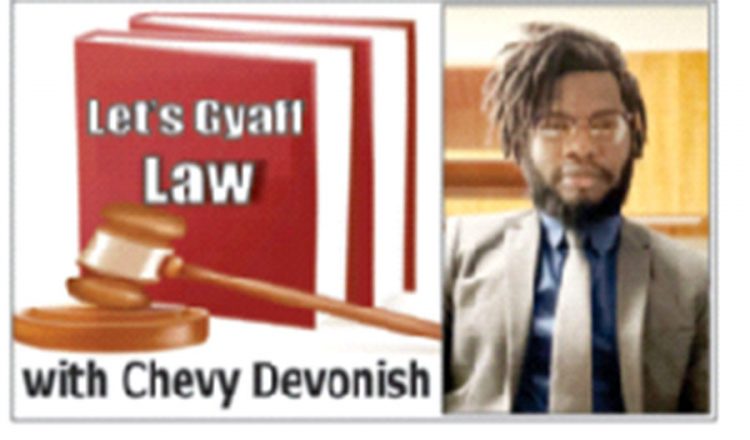 Breaking Down Sexual Offences Act
Breaking Down Sexual Offences Act
Last week we examined section 38 of the Sexual Offences Act, Chapter 8:03, Laws of Guyana (SOA) which abolished the presumption that boys under 14 years could not be found guilty of rape.
Before that law, boys under 14 years were considered incapable of sexual competence and therefore sexual intercourse. This meant they could not be charged with or tried for rape, even if there was evidence that this happened.
Section 38 cancelled that legal position, meaning that boys under 14 who are accused of non-consensual sexual activity are now treated the same way as any boy who commits any other offence in accordance with the Juvenile Justice Act.
This week, we will examine, and break down section 39 of the SOA. Section 39 of the SOA deals with cases where people were charged with sexual offences before the SOA was passed.
Section 39
Section 39 of the SOA states that “a person who committed an offence before the commencement of this Act and which is an offence under this Act shall be charged, tried and punished under the law in force immediately before the coming into operation of this Act.”
This provision means that if someone broke the law before the SOA was passed in 2010, but what they did is also a crime under the SOA, they will be charged, tried, and punished according to the old statute that was in place before this new law was passed.
Several of the offences under the SOA were originally offences under the Criminal Law (Offences) Act, Cap 8:01 (“the CLOA”). Those offences, considered sexual offences, included rape and incest, and fell under Title 7 of the CLOA, at sections 65-72, 74-77A and 83-89.
Today, if you look at the CLOA, you will see that all these sections have been removed by the SOA when it was passed. But why remove those sections? Why not just leave both of them in?
First, if they were not removed, a person could be charged with rape under both Acts and subjected to the separate sentences under the different Acts. If this happened, it could cause confusion, and could even see the charges being dismissed as it would be unfair to the accused person.
Second, the SOA created harsher sentences for sexual offences, and contained several other new laws, such as the wider definition of rape, which now allows a wider array of conduct (such as oral sex) to be classified as rape.
It is very possible that if rape remained an offence under the CLOA, and was also an offence under the SOA, an attorney for a person accused of rape by oral sex would argue that his client should have been charged under the CLOA, under which oral sex is not rape.
Leaving those offences in the CLOA would therefore defeat the intent and purpose of the SOA.
But why was section 39 needed? Well, there is a principle of law that a person should not be charged for any act which was not a crime at the time he committed it. There is also a principle that a person should be given whatever sentence was in force at the time he committed an offence. Therefore, if the maximum sentence for rape was ten years when he committed rape, but the maximum sentence is increased to life imprisonment subsequently, he should be subjected to ten-year maximum.
These rules follow the basic position that an offender should be sentenced according to the law which existed at the time the offence was committed, not the law at the time of sentencing.
Conclusion
In conclusion, section 39 of the SOA reminds the justice system of this basic rule of sentencing and ensures that the strong deterrent provided by the SOA is protected. It ensures justice for the victim by ensuring that a charge against a person based on sections 65-72, 74-77A and 83-89 remains valid despite being removed from the CLOA.
It also ensures justice for the accused by enforcing the sentence in force at the time he committed an offence, thereby subjecting him to the law of the day.
With section 39, the National Assembly of Guyana shows citizens that it was aware of, and acted to mitigate some of the issues that could have railroaded its attempts to strengthen sexual offences laws.
Mr Chevy Devonish is a Senior Legal Advisor with the Attorney General’s Chambers and Ministry of Legal Affairs, and a Part-time Lecturer at the University of Guyana. You can contact Mr Devonish
at chevydevonish@gmail.com.





